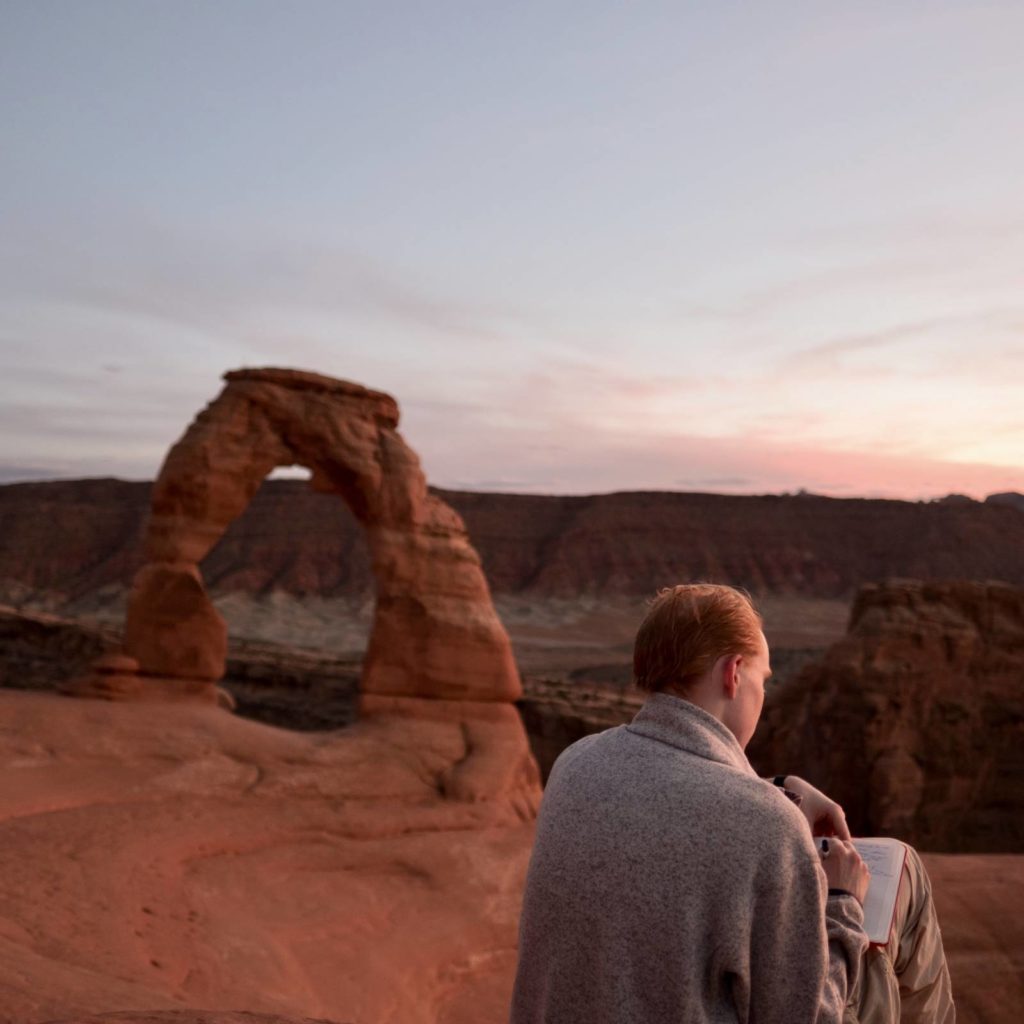This year, I spent my spring break traveling around Japan with my art history seminar course, ART 429 Visual Japan: Past and Present. It was an absolutely transformative experience, both academically and personally. I’m here to share a little bit about how I learned to use experiences to inspire research and find answers through reflection.
Open-Ended Assignments: Tips Towards Narrowing Your Research
When a professor assigns a research paper with no specific prompt, it sometimes can be hard to know exactly what kind of work is expected. Assignments like these may provide a suggested page count and an injunction to stay within the bounds of the course theme, but little else. In this case, the possibilities for paper topics seem infinite. Once you get past this hurdle and settle on a general idea you would like to explore, you still may feel compelled to answer some big questions; questions that might cover a long time frame, seek to identify general trends with a large sample size, or tackle broad theoretical questions. So much of the academic material we are exposed to seems to deal with these “big questions”: survey lectures, assigned readings with titles of sweeping breadth, and the prospect of the senior thesis.
The impulse you may have to ask big questions is natural, then— and it’s a good impulse, too! It is a great way to jumpstart your research, beginning the process of narrowing down by going from infinite potential topics to many potential topics. But, with a looming due date (unfortunately) limiting your research time, keeping your question broad can become overwhelming, and hinder your ability to meaningfully answer it.
During my experience this summer working on an independent research project as an intern with the Office of Undergraduate Research’s ReMatch+ program, I came to learn the importance of narrowing your question early in the research process. Though through the wonderful advice of my ReMatch+ graduate student mentor, my research was pretty specific by midsummer (focusing on the language of “othering” in New York City press reports of a June 1848 Paris workers’ rebellion), it took me several weeks to get to there— necessary time in retrospect, but time I would have rather been developing my topic rather than figuring out what it was. I definitely could have benefited from some guidance at the beginning of my work. So, with that in mind, I hope the tips below will help you narrow your research questions early on, so you don’t have to learn the hard way like I did.
Continue reading Open-Ended Assignments: Tips Towards Narrowing Your Research
De-Mystifying the Black Box Part 2: Research Abroad and Narrowing Everything Down
I went to Paris! Not just for fun—although it’s a dope city—but to get some thesis research done to narrow down a topic. In the first part of this series, I mentioned how I submitted an application for funding to research advertisements in museum archives and libraries in Paris. My goal was to narrow down the initial research question I had at the very beginning of my research process: how Public Service Announcements (PSAs) subvert the capitalist practices within traditional commercial advertising. My goal was to see the advertisements that inspired the French theorists I’ll be drawing from in my thesis. But, alas, there was one problem—when faced with an entire archive of advertisements, where do I even begin??
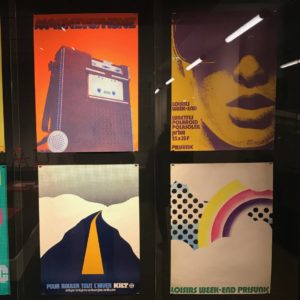
I spent most of my time at the Bibliothèque Forney, a library specializing in design and the decorative arts. I emailed ahead of time to speak with one of the librarians, who wanted to get a sense of my argument and which advertisements he could direct me into researching according to my response. After explaining my general thesis topic and the research I had done in my previous two JPs (pro-tip: explaining a thesis topic in a foreign language is a good marker for how well you understand it—or rather how much you don’t), he responded bluntly: “You really need to narrow this down.” My face fell. That’s exactly what I was trying to do, the very reason I was in that library. I didn’t have a corpus of ads, which is what I was in search for in Paris. I had kind of hoped to look at a vast layout of ads and just be naturally drawn to an era, a medium, a theme, or product, but I quickly realized it was far too unrealistic to be able to survey three hundred years of French advertisements and just hope that a few of them would speak to me so I could write eighty pages about them. The librarian asked me how much time I had to write my thesis, suggesting one to two years, and I chuckled, slightly panicked, and said “six months.”
Continue reading De-Mystifying the Black Box Part 2: Research Abroad and Narrowing Everything Down
How to Get Work Done Without Even Trying: Passive Brainstorming for Essays and Final Assigments
In addition to this lovely position as a blogger for PCUR, I am also a Learning Consultant at McGraw. (*shameless plug*: Learning Consultations at McGraw are individual hour sessions with a student (like me!) where you come up with strategies on how to best handle your studies at Princeton). Last year, a couple consultants volunteered for the inaugural episode of McGraw’s podcast, “Making Learning Audible,” where we talked about finding balance between work and relaxation over winter break. During winter break in my first year at Princeton, I put a lot of pressure on myself to study intensively for exams but ended up just overwhelming myself and doing nothing. Any attempt to actively work on my essays to reach my high standard of getting super ahead on my Dean’s Date papers was met with instant exhaustion.
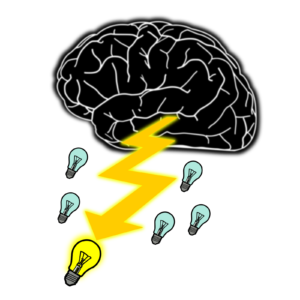
However, I said in the podcast: “For my sophomore winter break, I learned from that, and all I wanted was just a good place to start when I got back. I did not put a lot of pressure on myself. I let all the work that I had to do be kind of passive and if something came to mind that I really liked I would jot it down and get back to it”.
In this post, I’ll unpack what I meant by “passive work.” Active brainstorming, in my experience, is choosing to set aside time to sit down and build an essay or open-ended question on an exam from scratch. So, what does it look like to stretch out this brainstorm period so when you sit down to write, the paragraphs basically form themselves? Here are some tips on how I’ve been able to cut down on brainstorming time and get down to business:
The Conference that Will Prepare You for Your Final Paper in Writing Seminar
Writing seminar is a demanding and rigorous rite of passage at Princeton. The packed schedule, along with the constant writing and peer editing, makes it seem like you’re taking two courses instead of one.
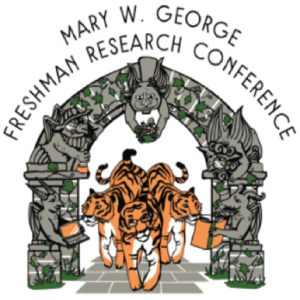
But for all you first years, I promise (as a *hopefully wiser* sophomore) that there’s a lot that you can get out of this one course that Princeton requires all first years to take. Although writing seminar is a trying class, it really is the basis of writing for all your future classes at Princeton. (I know, I know, I sound like your writing seminar professor. I’m sorry!)
I still remember the dread I felt when I first heard about the R3, or revised essay #3. For the R1 and R2, the argument was, to a certain degree, provided by the professor. The R3 asked me to develop “an original argument,” and the possibilities for the research topic seemed endless. I had no idea where to start. How was I going to write this?
Continue reading The Conference that Will Prepare You for Your Final Paper in Writing Seminar
How to Research and Watch Movies at the Same Time
Until recently, I only watched TV and movies in order to decompress. There’s nothing quite like lying in bed after a long day, lulled to sleep by my favorite Netflix show. Requiring minimal effort, movies acted as a brief escape from my reading- and writing-heavy coursework.
Like many Princeton students, though, I sometimes felt guilty choosing to watch TV over, say, finishing my readings for precept the next morning. But a few weeks ago, my professor introduced me to an invaluable resource called Kanopy. Completely free for all Princeton students and faculty, this site provides over 30,000 films for streaming on any device. But Kanopy isn’t just another Netflix or Hulu: it’s specifically designed for use in research institutions.
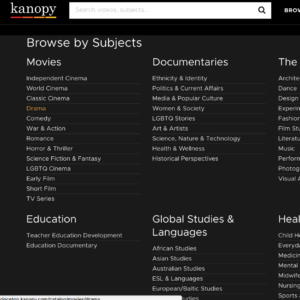
Continue reading How to Research and Watch Movies at the Same Time
Finding Online Sources
With Dean’s date looming, it is likely that many of you (like me) are about to get a late start on your term papers. In my experience, the success of a project and the effectiveness of my thesis rests largely on my understanding of past research and the foundational theories concerning the topic. The first steps I take in a research project are to explore the literature surrounding a topic and to begin to put together a library of sources. However, when searching for online sources, it can be hard to know where to start looking, how to identify important and reputable sources, and how to keep your searches organized. Luckily, there are many tools that can help you streamline your search and get writing faster! If you are struggling, here is a basic framework you can use to search better:
Use Web of Science to Guide your Search
Web of Science is a human-curated database, which generally includes only reputable journal articles. It links every article to those that it cited and those that cited it, creating the eponymous ‘web’ that you can easily traverse in search of important or fundamental sources. Web of Science’s detailed statistics on article citations and journal impact allow you to more easily ascertain the relative importance of an article. It has highly customizable search options and even provides links to the full-text through Princeton University Library and Google Scholar.
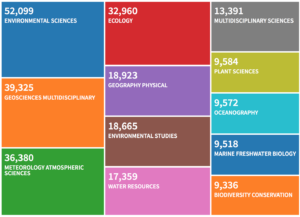
While Web of Science is a powerful tool, it has some draw-backs. You need to be connected through the Princeton network to access the site, it doesn’t include all journals from every discipline, and cannot search within the main text of articles for keywords. For that reason, I usually supplement my search with Google Scholar after forming a basis of reputable articles from Web of Science. Google Scholar allows for in-text keyword search and includes many mediums in addition to journal articles, but it is not a human-curated database, and search results will include many sources that are unreputable or low quality.
Build a Library of Sources With Google Scholar:
I have often found myself lost in a sea of open tabs or forgetting where I found a promising article. Keeping my search organized is always a struggle, but with Google Scholar’s library feature, it is extremely simple. If you find an interesting article, simply click the star on the lower left hand side of the search result. The article link will be saved to your personal library along with its citation information. You can easily organize your library by assigning labels to different topics or projects and editing citation information. As your topic narrows and you begin to form a thesis, your library will evolve. Using Google Scholar Library is great because you can easily add, delete, and organize your library without having to download PDF documents or external apps. When you’re ready to cite your sources, Google Scholar creates citations for you and allows you to export citation files in many different formats.
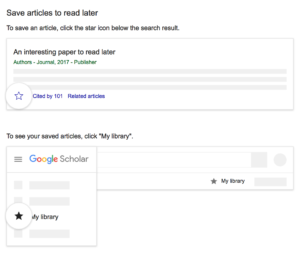
Using this basic framework for online source searching can help you find useful and reputable articles while saving you time and keeping your sources organized. If you are struggling to find articles for your discipline on Web of Science, Scopus is an awesome alternative which is very similar but has a different format and has a slightly different selection of articles. For even more specialized databases, you can always check out the Library’s website. In addition, for those who prefer to save their library on their computer and not store it online, applications like Mendeley or Zotero have great tools for downloading and organizing PDF sources and automating citations.
–Alec Getraer, Natural Sciences Correspondent
How to Approach a Politics Paper
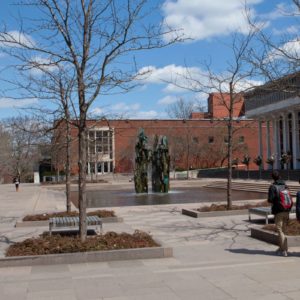
This week, I’m working on a paper for Human Rights, a politics class that I’m taking.This course only has one major paper assignment, and it’s very broad. Given that this is a tricky, but not entirely uncommon situation, I thought I’d share my approach to writing this paper. It’s often said that “writing is thinking,” so why not write about thinking about writing?
I started thinking about the paper pretty early in the course. To be fair, this wasn’t all me—my preceptor gently encouraged us to have a topic in mind before Spring Break. The best thing about brainstorming topics early is that you have the time and latitude to allow your idea to evolve. And evolve my idea did. Continue reading How to Approach a Politics Paper
Visualizing Your Argument
The blank page at the very beginning of the writing process is one of the most difficult stages for me. I struggle with how to get started and feel overwhelmed by the amount of work ahead of me.
To avoid this blank page, I open a Word Document called “Notes” early on in the research process. As I sort through the ever-accumulating pile of books and articles on my desk, I copy the relevant quotes into the document, followed by the author’s name and the page number. Typically, only a fraction of these quotes actually make it into the paper, so it can be hard to know when to stop. The metric I’ve figured out is: when the notes document is double the length of the assignment, I know it’s time to begin drafting the paper.

As I write, this document becomes my primary resource for information and direct quotes. Because it’s consolidated in one file, it’s easily navigable and searchable. Sometimes, I reorganize the quotes into sections to guide my paragraph structure and overall argument.
In the past, this system has worked well for me. But in the past few weeks, two of my teachers have modeled an exciting new approach to organizing research materials: visual mapping. Continue reading Visualizing Your Argument
GEO/WRI 201: The Best Course on Scientific Research and Writing Offered at Princeton
“Any science major should consider this course…it is basically independent work guided by two top notch professors and supported by an entire seminar class.” – Anonymous Student Review
Every undergraduate studying the natural sciences at Princeton undertakes significant independent research projects in their Junior and Senior years. GEO/WRI 201: Methods in Data Analysis & Scientific Writing is a unique course designed specifically to teach students how to write an independent scientific paper. If you are a Sophomore or Junior looking to attain the concrete skills and confidence to tackle independent research, there is no better class to take.
In 201, you will learn how to design, research, write, and present original scientific research, all through the lens of measuring changing landscapes using satellite and drone-derived aerial imagery. Under the mentorship of Adam Maloof (GEO) and Amanda Irwin Wilkins (WRI), and with the support of your peers, you will: develop an original, well motivated scientific question; design effective field methods to test a specific hypothesis; quantitatively analyze data and imagery; and learn how to effectively communicate the results in a scientific paper and slideshow presentation. The highlight of the class is a nine day field trip across Utah, where students work collaboratively to implement their own field methods, piloting drones and collecting climatological data.
